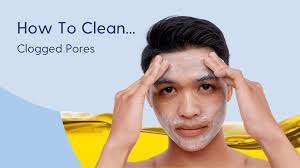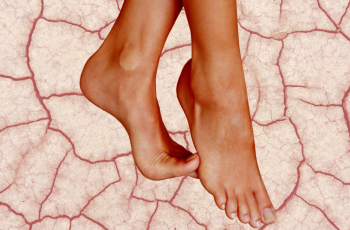
What’s the Best Way to Clean Pores?
Patients ask me nearly every day what they can do to clear their pores and keep them clean and free of blackheads and whiteheads. While I prefer using chemical exfoliants like salicylic acid for this, physical extraction devices can also work. In this guide, I will explain what causes clogged pores, the best methods for cleaning them, and how to prevent them from becoming clogged in the first place.
There are two ways to clean pores: chemical exfoliation and physical extraction.
Prevent clogged pores with retinol and the right skin care regimen for your skin type.
Unclog pores with salicylic acid, retinol, benzoyl peroxide, or clay masks
What Causes Clogged Pores?
Pores become clogged when dirt, oil, makeup, and/or bacteria on the skin becomes trapped inside the pore. This can result in a whitehead, blackhead, milia, or acne papule or pustule. Hormonal changes, certain skincare products, and environmental pollutants can also contribute to pore congestion. For more information, check out our comprehensive guide on what causes clogged pores .
How to Clean Pores
There are 2 main options when it comes to getting clean pores: chemical exfoliation and physical extraction. In my opinion, the best and safest way to gently clear pores is with chemical exfoliation. To do this, use products that contain one of the following:
Benzoyl peroxide
Retinoids
Salicylic acid
These ingredients are much safer than physical extraction methods like a comedone extractor or even your fingers.
Chemical exfoliation involves using products that contain active ingredients to dissolve the debris clogging your pores. Salicylic acid is an effective option because it can penetrate deep into the pores and break down excess oil and dead skin cells. It also has anti-inflammatory properties, helping to reduce redness and irritation caused by clogged pores and pimples.
Other common hydroxyacid exfoliating ingredients include glycolic acid and lactic acid, which help to exfoliate the surface of the skin and improve overall texture. However, salicylic acid works better because it is lipophilic and can penetrate deep into the clogged pores while glycolic acid and lactic acid cannot.
Take the skin type quiz to see which of these options is best for your skin concerns.
Benzoyl Peroxide Products
Benzoyl peroxide clears pores by releasing oxygen to kill acne-causing bacteria. It also exfoliates the skin, removing dead cells that block pores. This reduces existing comedones and stops new ones from forming. Some dry, sensitive skin types cannot tolerate benzoyl peroxide so make sure you know your skin type before you purchase any BP products.
Salicylic Acid Products
Retinol Products
Retinol dissolves comedones by speeding up skin cell turnover, which clears out clogged pores. It helps to remove dead skin cells and prevent new blockages, reducing acne.
Always start with a low strength retinol as seen in the collection below and work your way up to a stronger retinol.
Pore Clearing Masks
Mud, clay, and charcoal clear pores by absorbing excess oil and impurities from the skin. They draw out toxins and dirt, unclogging pores. These natural ingredients help to deep clean, leaving skin refreshed and less prone to breakouts. These can be used once a week but are best for oily skin types.
Physical Extraction
Physical extraction involves manually removing the debris from your pores using special tools like comedone extractors and mini pore vacuums that use suction to remove buildup inside pores. While physical extraction can be effective, it is crucial that you use the proper technique to avoid damaging the skin. Additionally, all extraction tools must be sterilized before use – otherwise, they can push dirt and bacteria further into the pore and lead to an infection or cyst.
Devices such as the Forneo are another way to clean pores.
Avoid using a tool such as a comedone extractor that can break the skin, push debris deep in the skin, and cause cysts and scars.
Pore Cleaning Hacks to Avoid
There are so many at-home hacks to clear your pores on social media, but some of them may cause damage to your skin. Avoid trying these DIY hacks to clean your pores :
Baking soda scrub. Some TikTok influencers suggest creating a paste of baking soda and water and rubbing it on your face to remove blackheads from pores. This is not a good idea, however, because baking soda is abrasive and can damage your skin, as well as change the pH of your skin.
Lemon juice. Other social media influencers have been rubbing lemon wedges or lemon juice on their faces in an attempt to deeply cleanse their skin and pores. This is not a good idea because lemon juice is acidic and can damage your skin and throw off its natural pH balance. Additionally, there is a condition called phytophotodermatitis that is caused by an interaction between lemon or lime juice on your skin and the sun. It can cause painful blisters and burns.
Toothpaste. It is a longstanding myth that toothpaste can clear acne or unclog pores. Recent TikTok videos have resurfaced this myth, using toothpaste to attempt to remove blackheads from pores on the nose. However, toothpaste contains ingredients that can irritate and dry your skin, which could make acne and clogged pores worse.
Comedone extractors. There are many types. Usually made of hard metal with a ring. These are so dangerous that I rarely used them in my dermatology office so please do not use these at home!
How to Prevent Clogged Pores
Preventing clogged pores with the correct skin care routine using products is better than having to clean pores once they become clogged. While your skin care routine should be customized to your specific skin type and needs, here are some general tips you can follow to help keep your pores clean:
Incorporate retinol into your regimen. Retinol helps to increase cell turnover and prevent dead skin cells from clogging pores.
Cleanse your skin regularly. Use a cleanser that is appropriate for your skin at least once per day, depending on your skin type. Always remove makeup before going to bed.
Exfoliate regularly. Exfoliating your skin using a hydroxy acid cleanser can help to keep your pores free of debris. However, over-exfoliating your skin can cause dryness and flaking, so gradually introduce exfoliating products into your regular routine.
Avoid comedogenic products. Comedogenic ingredients are known to clog pores. Some common ones to avoid to keep pores clean include almond oil, beeswax, cocoa butter, cotton seed oil, lanolin, and some dyes.
Avoid touching your face. Touching your face or picking at pimples can transfer dirt and bacteria from your hands onto your skin, causing clogged pores and acne breakouts.
Bottom Line
Preventing clogged pores is always better than cleaning pores once they’ve already become clogged with dirt, oil, and bacteria. However, if you are struggling with blackheads, whiteheads, or acne, using a salicylic acid cleanser, toner, or mask or carefully using physical extraction devices can help you to restore clear, clean pores. Before using any new skin care product, make sure it is a fit for your skin type so that you do not unknowingly contribute to clogged pores and acne by using the wrong ingredients for your skin.


